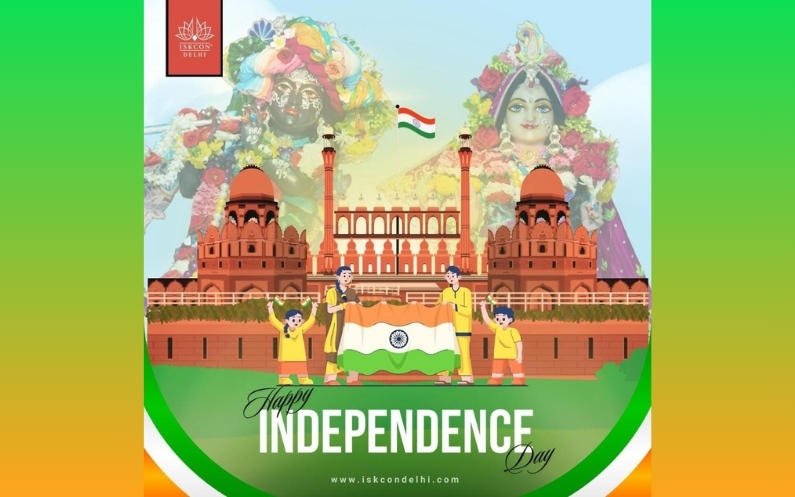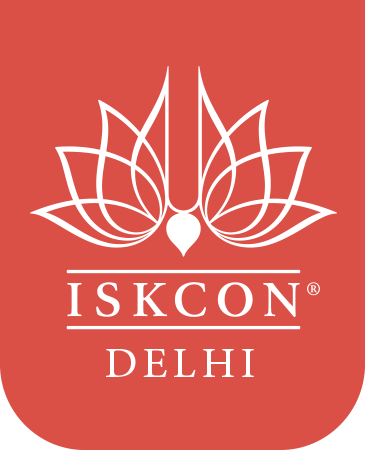
Celebrate Independence Day
On August 15th, people across India celebrate Independence Day with great enthusiasm. Whether it’s spending time with family, enjoying movies and restaurants with friends, or reflecting on the sacrifices of freedom fighters, this day is a symbol of joy, patriotism, and national pride for many Indians. We honor those who fought for our freedom and cherish the independence we gained in 1947. But in the midst of all the celebrations, have we ever stopped to question what independence truly means?
The Essence of Independence
The word “independence” generally means not being controlled by anything or anyone. But if we look closely, we might find that our so-called independence hasn’t freed us in the way we think. Consider this: we have little control over our own bodies. Our heartbeat, digestion, and many other bodily functions operate on their own, without any conscious control from us. Even if we wish to meet someone important, like the Prime Minister, we realize how difficult it is. Despite being independent citizens, we don’t have unrestricted access to those in power. Is this what true independence looks like?
A Comparison Between Then and Now
During British rule, many Indians worked for the British government in exchange for a salary. Today, many Indians are government employees too. When people went against the British, they were often met with violent suppression. Today, if large groups protest against the government, the police are called in to control the situation. So how different is independent India from the India under British rule?
Some might argue that the difference lies in our ability to follow our culture, social values, and traditions. But are we truly following our ancient Vedic culture? From the way we dress to the food we eat, we seem to be adopting more and more of a materialistic Western lifestyle. Our wardrobes are filled with branded jeans, our diets include pizza and burgers, and our best jobs are with multinational companies. Even our education system was introduced by the British. We may be politically independent, but are we culturally and spiritually independent?
Real Independence: A Spiritual Perspective
Most people don’t grasp the true meaning of independence. Real independence means returning to our original, constitutional position as servants of God. According to the Bhagavad Gita, Lord Krishna says that all living entities are His eternal parts and parcels. However, due to their desire to enjoy the material world, they are struggling with the six senses, including the mind. This struggle is because we are not in our true home. Just as a fish out of water will eventually die, living entities suffer in this material world because it is not their natural environment.
The Illusion of Identity
In our material existence, we identify ourselves with our bodies, families, and nations. If someone is born in America, they identify as American; if someone is born in India, they identify as Indian. But these identities are superficial. The Srimad Bhagavatam says that a person who identifies with their body, considers their family as their own, or worships the land of their birth is no better than a cow or an ass. This verse reminds us that our true identity is spiritual, not material.
The Upanishads also teach that the living entity is uncontaminated by the material world. Just as oil and water don’t mix, the soul, even though it is in contact with matter, remains distinct from it. No amount of political or material change can bring true independence. Real independence means being free from the cycle of birth, old age, disease, and death. In the Bhagavad Gita, Lord Krishna describes these as the real problems of life.
The Temporary Nature of the World
Krishna explains in the Bhagavad Gita that this world is temporary and full of miseries. He describes it as “dukhalayam” (a place of misery) and “asasvatam” (temporary). The only way to escape this world is by attaining Him. Once a person attains Krishna, they never return to this miserable world. This is the real independence we should strive for: independence from the cycle of birth and death.
The Path to True Independence
Krishna outlines the path to true independence in the Bhagavad Gita. He advises Arjuna to always think of Him, become His devotee, worship Him, and offer homage to Him. By doing this, Arjuna is assured that he will come to Krishna without fail. Krishna also instructs us to abandon all other forms of religion and surrender to Him. He promises to protect us from all sinful reactions if we do so.
This process of surrender is made even easier by Lord Chaitanya Mahaprabhu, who propagated the congregational chanting of the Hare Krishna mantra. This 16-syllable mantra:
“Hare Krishna, Hare Krishna,
Krishna Krishna, Hare Hare,
Hare Rama, Hare Rama,
Rama Rama, Hare Hare”
can give us true independence – independence from the material world.
Independence Beyond the Material
To truly understand independence, we must look beyond the material realm. The body is temporary, but the soul is eternal. Real independence comes when we realize our spiritual nature and our eternal relationship with God. By focusing on our spiritual identity, we can transcend the temporary struggles of this world and attain eternal peace and happiness.
Krishna, in the Bhagavad Gita, teaches us that true knowledge includes humility, nonviolence, tolerance, and self-control. It also includes the understanding that birth, death, old age, and disease are inevitable as long as we remain in this material world. True independence, therefore, is not just about political freedom or the ability to live as we please. It is about freeing ourselves from the bondage of material existence.
The Role of Devotion in Achieving Independence
Devotion to God plays a crucial role in achieving true independence. Krishna emphasizes the importance of constant and unalloyed devotion to Him. He advises us to live a simple life, detached from material possessions and the general mass of people. By focusing on self-realization and the philosophical search for the Absolute Truth, we can attain true knowledge and independence.
Krishna also assures us that those who attain Him never return to this material world. They achieve the highest perfection, which is freedom from the cycle of birth and death. This is the ultimate goal of life – to attain Krishna and be free from the miseries of the material world.
The Power of the Hare Krishna Mantra
Lord Chaitanya Mahaprabhu, who is considered an incarnation of Krishna, introduced the simple yet powerful method of chanting the Hare Krishna mantra. This mantra has the power to purify our hearts and minds and reconnect us with our original spiritual nature. By regularly chanting this mantra, we can gradually become free from material desires and attachments, and develop a deep love for Krishna.
The Hare Krishna mantra is not just a religious chant; it is a spiritual tool that can help us achieve true independence. It reminds us of our eternal connection with Krishna and helps us focus our minds on Him. In this way, we can transcend the temporary nature of this world and attain eternal happiness.
Conclusion: Embracing True Independence
As we celebrate Independence Day, it is important to reflect on the true meaning of independence. Political freedom is important, but it is not the ultimate goal. True independence lies in understanding our spiritual nature and our eternal relationship with God. By following the teachings of Krishna in the Bhagavad Gita, we can free ourselves from the cycle of birth and death and attain eternal peace and happiness.
Let us strive for this true independence by focusing on our spiritual development, chanting the Hare Krishna mantra, and living a life of devotion to God. This is the real freedom that will bring us lasting happiness and fulfillment.
